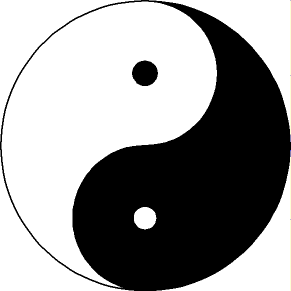21 Sep Tai Chi Improves Physical and Mental Health in Some Chronic Conditions
 MedicalResearch.com Interview with:
MedicalResearch.com Interview with:
Yi-Wen Chen PhD Candidate, and
Darlene Reid, BMR(PT), PhD
Professor and Chair
Department of Physical Therapy
University of Toronto
Toronto, Ontario
Medical Research: What is the background for this study?
Response: Tai Chi is a time-honored exercise in China, developed during the Sung Dynasty, which has gained increased popularity in Western society. Most styles of Tai Chi consist of slow rhythmic movements that often emphasize typical attributes of exercise including range of motion, strengthening, balance, and postural alignment. In addition, there are spiritual aspects of Tai Chi that focus on relaxation, breath control, and cultivating internal energy. Several studies have demonstrated its multifaceted benefits in the elderly and in people living with chronic diseases including cancer, cardiovascular diseases, respiratory disorders and arthritis. If you were interested in seeing videos of beginner practices, check out some tai chi online to better clarify the motions previously described.
Many individuals that require increased exercise and physical fitness also have one or more comorbidities; 9 out 10 Canadians live with more than one chronic condition and this proportion increases to 98% in adults over the age of 65 years. Increased fitness can increase quality of life and decrease risk of mortality and morbidity in older persons and in many chronic conditions. However, treatment, including exercise is often prescribed within a single specialty. Rarely is information provided to health professionals that integrates therapeutic approaches across several common chronic disorders. Accordingly, we performed a systematic review to determine if Tai Chi is an effective physical activity that improves symptoms, physical function, quality of life and depression in cancer, osteoarthritis (OA), heart failure (HF) and chronic obstructive pulmonary disease (COPD)? We also examined if Tai Chi had similar effects for the same outcome measures across different chronic conditions?
Medical Research: What are the main findings?
Response: This systematic review with meta-analyses examined 33 studies that included a total sample size of 1584 patients. The main findings were that Tai Chi can improve physical performance and mental health measures consistently in three of the four chronic conditions. Improvements in physical performance included longer walk distances, greater thigh strength, and better performance in measures that required coordination, balance and lower extremity strength. Quality of life and depression scores improved as well. These benefits were more often demonstrated in people living with OA, HF and COPD but not in those with breast cancer. The lack of consistent benefits in women with breast cancer might be due to their younger age (54 yr versus 68-72 yr), the physical impairments induced by breast cancer and other ongoing interventions that are often provided to people with this type of cancer.
Besides measures examined in all disorders, the primary symptoms of a particular condition also improved. Symptoms of pain and stiffness decreased in OA patients and dyspnea tended to decrease in people with COPD.
Medical Research: What should clinicians and patients take away from your report?
Response: Major points to consider are that unequivocally, exercise and physical activity can improve function and quality of life. The conundrum is that many people may not like or sustain typical exercise programs. Another important fact is that the systematic review reported the probability of findings in large groups of patients whereas exercise is prescribed to an individual who has many personal considerations. Keeping in mind these contextual issues, Tai Chi is a viable exercise option that provides many exercise benefits and appears to alleviate rather than aggravate primary symptoms that are experienced by people with OA, HF, and COPD. At first glance, its more gentle, spiritual presentation may appear less therapeutic. However, many of the movements work through large ranges of motion of all extremities and impose stress on balance and strength. In summary, Tai Chi has been demonstrated to improve important outcomes of physical activity –strength, coordination, balance and sense of well being, and might benefit many individuals who live with OA, HF and COPD.
Medical Research: What recommendations do you have for future research as a result of this study?
Response: The systematic review reported data from studies that included people living with a primary disorder and often these types of studies exclude patients with complex presentations and multimorbidity. Future studies need to examine people with several coexisting chronic conditions and complex presentations of these disorder rather than recruiting those living with a single disorder. A second issue is selection of the most effective Tai Chi form and movements. Currently, there are many traditional and contemporary styles of Tai Chi, some of these require complex and possibly excessive exercise demands. It would be very helpful to define the most effective Tai Chi movements that can efficiently result in the desired physical function and well-being for people living with multimorbidity and complex presentation of these disorders.
Citation:
Yi-Wen Chen, Michael A Hunt, Kristin L Campbell, Kortni Peill, W Darlene Reid
[wysija_form id=”5″]
MedicalResearch.com is not a forum for the exchange of personal medical information, advice or the promotion of self-destructive behavior (e.g., eating disorders, suicide). While you may freely discuss your troubles, you should not look to the Website for information or advice on such topics. Instead, we recommend that you talk in person with a trusted medical professional.
The information on MedicalResearch.com is provided for educational purposes only, and is in no way intended to diagnose, cure, or treat any medical or other condition. Always seek the advice of your physician or other qualified health and ask your doctor any questions you may have regarding a medical condition. In addition to all other limitations and disclaimers in this agreement, service provider and its third party providers disclaim any liability or loss in connection with the content provided on this website.
Yi-Wen Chen PhD Candidate, and, & Darlene Reid, BMR(PT), PhD (2015). Tai Chi Improves Physical and Mental Health in Some Chronic Conditions m
Last Updated on September 21, 2015 by Marie Benz MD FAAD
